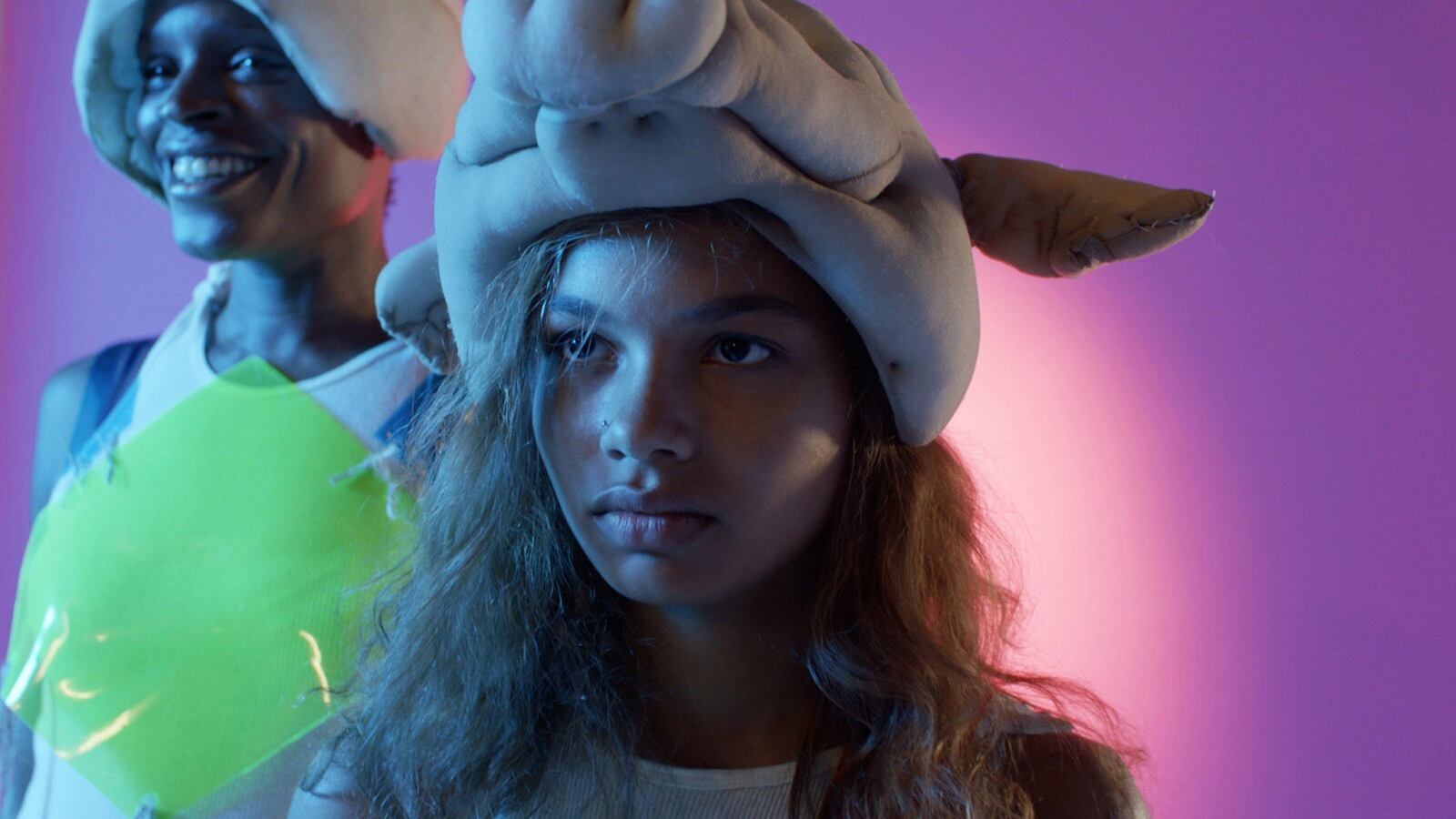A cat, a cab driver and a 12-year-old Olympic skater are among the roles on actor, director and former Portlander Miranda July's wildly eclectic résumé. Yet none of those parts was quite so demanding as her latest in Josephine Decker's kaleidoscopic new indie, Madeline's Madeline. July plays Regina, a woman buckling under the pressure of caring for her daughter Madeline (newcomer Helena Howard), who is struggling with a mysterious mental illness.
While Madeline's Madeline is fueled by Howard's kinetic performance, it also offers the rare opportunity to see July, director of Me and You and Everyone We Know and The Future, in a feature she didn't make. Her intensely vulnerable performance is the film's secret weapon—and a reminder that behind the debates about her work's merits is a performer who knows how to dramatize a character's inner life with vigor, subtlety and grace.
WW spoke to July about collaborating with Decker, the challenges of playing a mother, and her persistent fascination with putting animals on screen.
WW: Your character is nurturing but struggling to connect with her daughter. How did you approach playing her?
Miranda July: I'm probably drawing to some degree on my own mom. But I have a child now, so I have a lot more fear and anxiety to draw from. Josephine, the director, filled me up with all these details about what it would be like to have a child with mental illness and how many times I'd probably been to the emergency room, how I had feared for my own safety. Helena, the actress, she was 17, and kind of unpredictable. I couldn't always tell if she was acting or not, because this was really intense for her.
There's a scene where Madeline is throwing all these things her mother has said back in her face. Does having a child make something like that tough to play?
I didn't approach every moment from the point of view of having a child myself. I think I have a large well of sadness in me, and I just called upon it again and again and was surprised to learn that it's never-ending. To actually cry again and again, you need to draw on your own pain, which I have plenty of.
Did you mentor Josephine Decker at all?
She's become a friend and we're peers. But having one of your actors be a director, it's nice, because the actors are usually never thinking about how lonely it is to be a director. She always kept her cool, but I just know how hard it is, so a couple times, I went up to her and said, "By the way, if you're wondering if everyone hates you, they don't. We all love you." It was nice to be able to tell her the things I wish someone would tell me when I was shooting.
Cats play an important role both in Madeline's Madeline and The Future. Do cats intrigue you partly because they're not necessarily easy to decode?
I don't know if I have a cat thing in particular, but I know that animals are great when you're making stuff because they're alive. They're kind of like people, but they occupy this literally wild space. So you can express all the things that really can't be articulated in a more civilized way.
